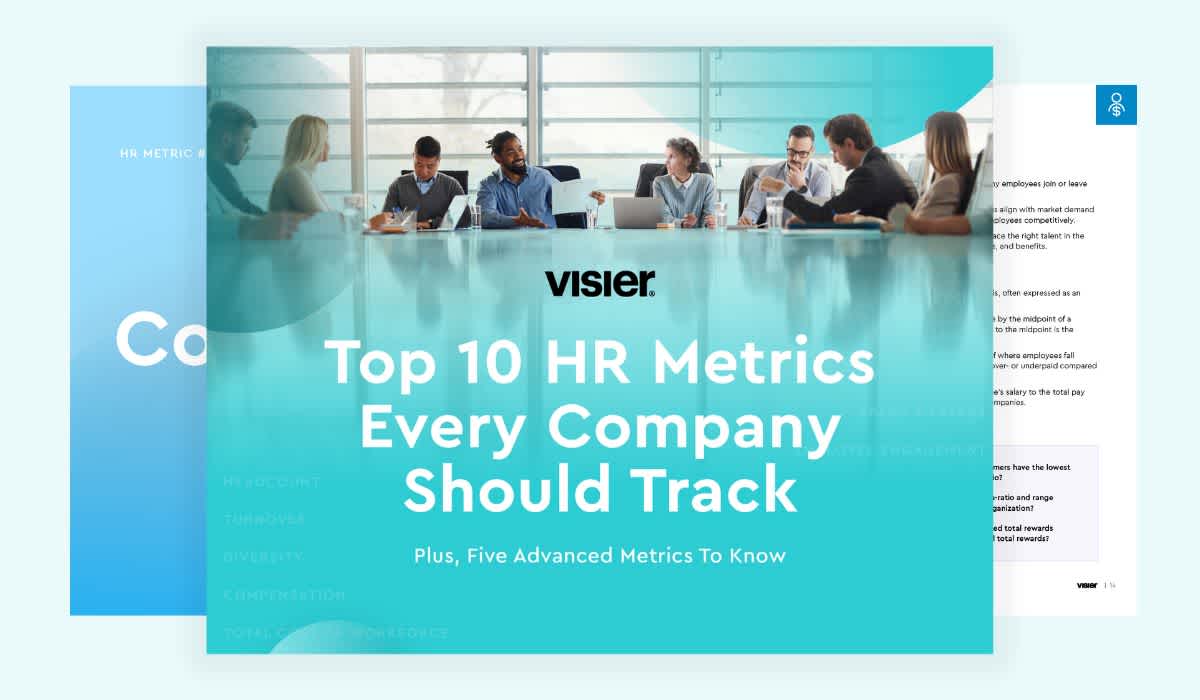How To Be an Effective Manager and the Role of People Data
Being an effective manager comes with a blend of management skills and leveraging data to inform decision-making. Learn more here.

Effective managers are an essential part of any team and company. They can attract and retain top talent, boost productivity, and create a positive work environment where everyone thrives. Contrary to what some believe, effective people management is not an art only a select few can master. It’s a set of skills anyone can develop with a bit of work and with the smart use of data.
What is a people manager?
A people manager is a person in a leadership or supervisory role in a company. They oversee and manage either individual employees or entire teams, guiding and supporting them so that they can reach their goals.
A good people manager won’t just tell their team what to do. They’ll help motivate them and be there to support them when they need it. They’ll also avoid micromanaging their team, leaving room for individual creativity and innovation.

What do people managers do?
When thinking of a manager, most people picture someone handing out tasks and keeping an eye on the schedule. In reality, a people manager’s role is more complex. Here are some of their responsibilities.
Team leadership. A people manager leads their team, helping them set goals, communicating expectations, and guiding them in their work.
Performance management. People managers are typically involved in the performance review process. They offer feedback, and, when needed, can help create a plan for performance improvement.
Conflict resolution. In an ideal world, teams would work seamlessly together with no conflicts. Sadly, conflicts can arise, even in the best of teams. A people manager needs to handle these moments with care, mediating disputes and addressing concerns.
Resource allocation. People managers often have a say in how many people should be on a team for a certain project, whether they’ll need training, or what hardware or software tools they need.
Strategic planning. With a deep understanding of their teams, managers can have an important word in organizational planning, helping align team and individual goals with those of the company.
Talent acquisition and retention. People managers can help recruit new talent and effectively onboard them into the company. By creating a positive work environment, they also have a strong contribution to retention strategies.
The importance of managing effectively
They say people quit bad managers, not jobs. According to a DDI study, 57% of employees quit because of their bosses. Even the recent “quiet quitting” wave is more about bad bosses than jobs, according to a Harvard Business Study review. It’s safe to say this trend is here to stay. People will leave a job if the manager is not good.
While retention is important and no company wants to see their top performers leave with little notice, that’s not the only reason manager effectiveness is critical.
Effective managers can also boost engagement, which increases productivity and performance. They create a positive work environment that fosters collaboration and growth. It is a win-win for both companies and employees.
4 characteristics of an effective manager
Effective managers are the key to a team’s success. They motivate, create a positive work environment, and help everyone grow, all while reaching the company’s goals. But what does an effective manager look like? These are some common characteristics.
They communicate clearly. Communication is one of the most important superpowers a manager can have. Being a strong communicator doesn’t just mean speaking well. It also means clearly explaining your expectations to your team and creating an environment where everyone can express themselves.
They know how and when to delegate. Effective managers don’t do everything all the time. They know when to delegate and they can choose the best people for each task. This increases everyone’s productivity while also allowing team members to grow.
They address conflicts quickly. Watching a conflict start and hoping it will resolve on its own is a disaster waiting to happen. Effective managers address the conflict as soon as it starts. They try to understand both parties and find the root cause. They are mediators, creating a positive and safe work environment.
They work on their own improvement as much as the team’s. Any manager must help their team improve their performance and productivity. But they shouldn’t forget about their own progress. An effective manager will focus on both the team’s and their own growth, learning from their mistakes and improving each day.

5 tips to become an effective manager
Effective managers have better retention rates, with teams that perform well and are more engaged. Here are some tips to help you improve as a manager.
1. Lead by example
Inspiring people through words is great. But if you do the complete opposite of what you’re expecting from your team, the results might not be the ones you hope for.
Be a positive example for your team in everything you do. From finishing all projects on time to collaborating to demonstrating a healthy work-life balance, all can boost the team’s productivity and engagement.
2. Provide regular feedback
People want to know how they’re doing and if they’re meeting expectations. Providing regular feedback can encourage your team, but it can also help people learn from their mistakes.
Feedback sessions like performance reviews can be scary for employees. Be sure to provide constructive feedback, backed by objective data and examples. Even if a person has made a mistake, criticizing them for critique’s sake won’t help anyone. Show them what they did wrong and help them improve.
Don’t forget to be open to feedback as well. Managers can make mistakes too. Allowing your employees to voice their concerns and improving based on their feedback are critical steps toward true manager effectiveness.
3. Be transparent with your expectations
You can’t expect people to perform their best if they don’t know what’s expected of them. Tell your team what you expect of them, what goals they should reach, and when.
If there are any bonuses for top performers, make sure everyone knows how you define a top performer, and what metrics and KPIs you’ll analyze when reviewing their performance.
4. Use data for all critical decisions
Manager effectiveness and data-informed decisions go hand in hand. Before making any important decisions, setting goals, or even assessing someone’s performance, look at the data.
Start by reviewing core HR metrics and other KPIs, but go one step beyond that by using analytics. It will help you understand the “why” behind the numbers. Why are some employees more productive or engaged than others? Why is voluntary turnover increasing?
Once you know the why, you can start understanding the trends, predict future developments, and find solutions for improvement.
5. Support career development
Employees prefer companies where they know they have development opportunities. Find out what your employees’ aspirations are.
Perhaps they want to learn something new, change careers, start working in a new department, or improve in their current role. You won’t know what they want unless you ask, and encourage them to share their aspirations. From there, you can support them through things like learning and development programs, mentorship, or succession planning.

The role of data in effective people management
Planning without using data to back up your decisions is just hoping things will get the way you want them. You might get lucky, but do you really want to base your company’s success on pure luck?
In recent years, 45% of companies have adopted some type of people analytics. You’ll usually find HR professionals using them the most. But the insights people analytics provide can be crucial in increasing manager effectiveness.
Using data and making it widely available for those in management positions can help improve performance, productivity, and many business processes. For instance, it makes team meetings more effective by ensuring there’s a clear and objective benchmark to discuss and grow from. Managers can take action quicker, having all the information they need at the tips of their fingers.
Data, and subsequently analytics, can help managers optimize the mix between full-time employees and contingent workers. You can understand important trends within various sectors of your business and see where and optimize your workforce to get better results. Why is this useful? Because it saves labor costs by up to 15% and improves organizational profitability.
Last, but not least, democratizing data helps managers focus more on the employees’ well-being and engagement.
Burnout is a serious issue that can affect any employee. It doesn’t matter how good they are at their job or how much they love what they do. Without sufficient focus on well-being, burnout is a risk. When it happens, it leads to a decrease in performance and productivity and even turnover.
Managers can play a critical role here. They can leverage the power of analytics and focus on areas that improve employee well-being and avoid burnout risk. Coaching, mentorship, career development opportunities, and recognition are some techniques effective managers can use.
People management is not some mysterious art that only a select few can master. Leading by example, being transparent, and providing feedback are some things that will significantly improve management in your company.
A systemic people analytics solution that helps you make data-informed decisions will also shape the way you approach management, increasing profitability and productivity in the entire company.
On the Outsmart blog, we write about workforce-related topics like what makes a good manager, how to reduce employee turnover, and reskilling employees. We also report on trending topics like ESG and EU CSRD requirements and preparing for a recession, and advise on HR best practices like how to create a strategic compensation strategy, metrics every CHRO should track, and connecting people data to business data. But if you really want to know the bread and butter of Visier, read our post about the benefits of people analytics.



